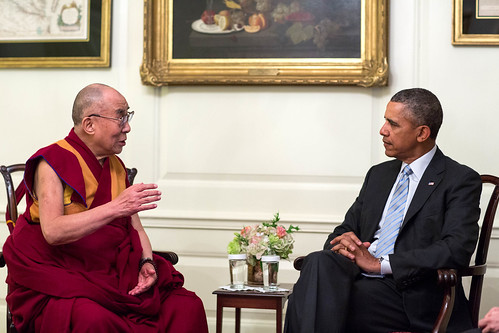
How can policymakers and conflict mediation practitioners effectively engage with religion? Indeed, how can practitioners mainstream such engagement with religious actors and organizations? And, what do we even mean when we ask these questions? These were just some of the questions posed at Religion, Foreign Policy and Development: Making Better Policy to Make a Bigger Difference a recent conference held at the UK Foreign Office’s Wilton Park that brought together policymakers, academics and practitioners for two days of wide-ranging and intense discussions.
Opportunities to engage with fellow practitioners are undoubtedly important for a number of reasons. Like gender and other cross-cutting themes, religion also runs the risk of being compartmentalized by experts and given little systematic consideration by colleagues in the same institution working on other topics. This is a challenge that those of us working in the field of mediation and conflict transformation also face: how do we make sure that religion’s role is adequately addressed by those who are working to resolve and transform conflicts?
Part of the challenge in talking about mainstreaming engagement with religion is being clear about what we want to mainstream. “Religion” is a loosely-defined term which can mean many different things in many different contexts. The easier aspect of religion to make sense of, and to develop concrete policies towards, is the notion of religious communities or religious constituencies. For policymakers particularly, this is a nice, tangible notion. There are groups out there who have particular interests, needs and views and who are endowed with particular capacities and resources. The existence of religious institutions, religious leaders and faith-based organizations makes it seemingly easy to enter into contact with these communities – we know who to call, as it were.
In this respect, things are already happening. Special units like the US State Department’s Office of Faith-Based Community Initiatives or the Faith Communities Engagement Team at the UK Department of Communities and Local Government have been set up to engage directly with religious communities and push their colleagues across government to do the same. In the field of conflict transformation there is a similar trend of engaging with religious actors, both as peacemakers and as stakeholders, to be brought into any process that hopes to be considered inclusive.
This form of engagement is necessary and important, but it isn’t enough. Nor is it without its challenges and risks. One risk in particular is that concentrating on such an approach may lead to another kind of compartmentalization in which religious communities and constituencies become seen as a specific segment of society. As was pointed out at the conference, in most parts of the world religious communities and constituencies make up nearly the entirety of society. Religion permeates the everyday of almost everyone and to engage with society is to engage with religion – religion cannot be sidelined as the preoccupation of some special interest group.
With this in mind, the conference also generated another helpful way of thinking about and defining religion. In one form or another, religion can be conceived as a lens or set of spectacles through which people look at the world. Our religion – or lack thereof – shapes the way we make sense of the world. When groups “wearing different spectacles” meet, as they inevitably do in the fields of development and diplomacy, their different ways of seeing and approaching things means that there may be strong divergences on many issues, both about what should be done and about how it should be done. In some situations these differences may even cause or fuel conflict.
Saying that the world is made up of groups of people with a wide variety of worldviews is nothing new. However, discussions about religion help to remind what a salient and challenging fact it is. In the context of the discussions on mainstreaming at Wilton Park it seemed particularly challenging at two levels. First, how do you persuade policymakers working at normatively-driven institutions like development ministries (whose job it is to promote human rights and particular notions of development) to routinely step back and question the lens through which they are working? Second, even once there is an awareness of the challenges posed by working in contexts where diverse worldviews are present, what can we advise policymakers to do about it?
This is where the field of mediation and conflict transformation may have something to offer. Mediation is about helping people to negotiate their differences. Developing and promoting tools and approaches that help people to negotiate their worldview differences may not only be of use to those working to prevent and transform conflicts, but also to policymakers more generally who are looking for concrete ways in which they can take worldviews into account. As policymakers, academics and practitioners continue to grapple with the question of how to engage with religion, one area where their efforts could focus is on developing practical tools on how to negotiate worldview differences. Such tools may be one way of helping policymakers to develop policies in a manner that is constructive and beneficial for everyone.
Owen Frazer is a program officer at the Center for Security Studies (CSS) working on the Culture and Religion in Mediation program which seeks to support mediation and conflict transformation processes involving actors holding different worldviews.
“Mediation Perspectives” is a periodic blog entry provided by the CSS’ Mediation Support Team and occasional guest authors. Each entry is designed to highlight the utility of mediation approaches in dealing with violent political conflicts.
For additional materials on this topic please see:
Interreligious Tension in South and Southeast Asia
Freedom of Religion in Turkey – The Alevi Issue
Constructing Sectarianisms and Conflict in the Middle East
For more information on issues and events that shape our world please visit the ISN’s Weekly Dossiers and Security Watch.

